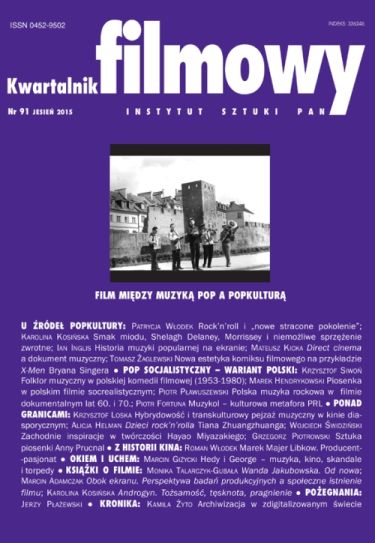Formy wernakularności. Folklor muzyczny w polskiej komedii filmowej (1953-1980)
Forms of the Vernacular. Traditional Folk Music in Polish Film Comedies (1953-1980)
Author(s): Krzysztof SiwońSubject(s): Fine Arts / Performing Arts, Music, Film / Cinema / Cinematography
Published by: Instytut Sztuki Polskiej Akademii Nauk
Keywords: Polish cinema; film comedy; Polish People’s Republic;
Summary/Abstract: The vernacular, understood as something native and colloquial, is a concept which permits to see Polish comedies as a local phenomenon, on many levels associated with current cultural changes. The role of a comedy has always been to comment on current political and social affairs, however during the socialist era this role became distinctly ambivalent. In the context of a state patronage the comedy not only had the ludic function but was also involved in the current ideological discourse. This problem in particular applies to the presence of folk music and the folk idiom on film soundtracks. Starting with the „Adventure in Marienstadt” (1953) up to the „Teddy Bear” (1980) performances of folk groups such as “Mazowsze” was associated with official ceremonies. At the same time, one can interpret the appearance of folk music in films from this period as an expression of longing for authenticity, perhaps irretrievably lost as a result of massification, modernisation and transformation of national culture.
Journal: Kwartalnik Filmowy
- Issue Year: 2015
- Issue No: 91
- Page Range: 80-92
- Page Count: 13
- Language: Polish

